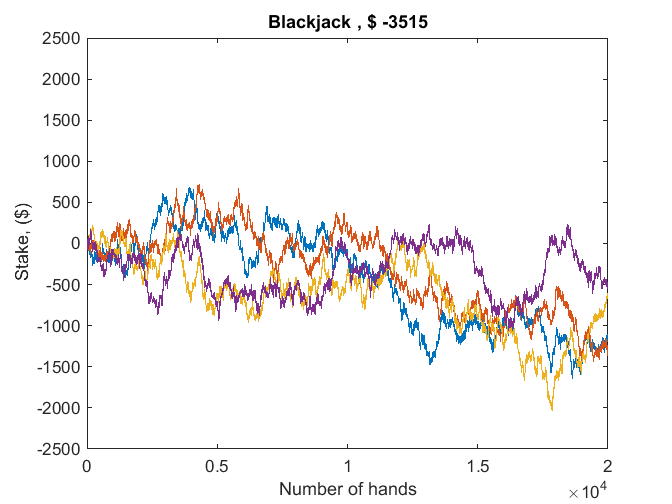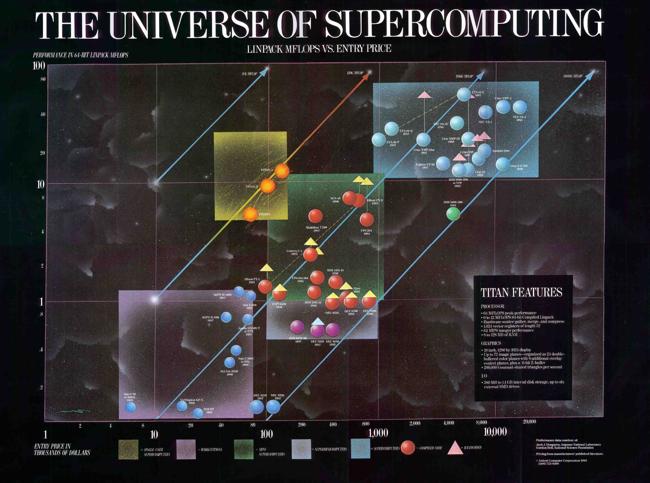I recently acquired a GPU, a graphics processing unit. It's called a GPU because such processors were originally intended to speed up graphics. But MATLAB uses it to speed up computation. Let's see how the
gpuArray object benchmarks on my machine.
I have been doing computer benchmarks for years. I like to do profiles where I vary the size of a task and see how the amount of memory required affects performance. I always learn something unexpected when I do these profiles.
Ben Todoroff is on the MathWorks Parallel Processing team. Last year he contributed
#34080, gpuBench to the MATLAB Central File Exchange. He has been able to compare several different GPUs. I am going to consider the performance of only one GPU, but in more detail.
Important note. This is only about double precision. Single precision is another story.
...
read more >>

 Cleve’s Corner: Cleve Moler on Mathematics and Computing
Cleve’s Corner: Cleve Moler on Mathematics and Computing The MATLAB Blog
The MATLAB Blog Guy on Simulink
Guy on Simulink MATLAB Community
MATLAB Community Artificial Intelligence
Artificial Intelligence Developer Zone
Developer Zone Stuart’s MATLAB Videos
Stuart’s MATLAB Videos Behind the Headlines
Behind the Headlines File Exchange Pick of the Week
File Exchange Pick of the Week Hans on IoT
Hans on IoT Student Lounge
Student Lounge MATLAB ユーザーコミュニティー
MATLAB ユーザーコミュニティー Startups, Accelerators, & Entrepreneurs
Startups, Accelerators, & Entrepreneurs Autonomous Systems
Autonomous Systems Quantitative Finance
Quantitative Finance MATLAB Graphics and App Building
MATLAB Graphics and App Building









